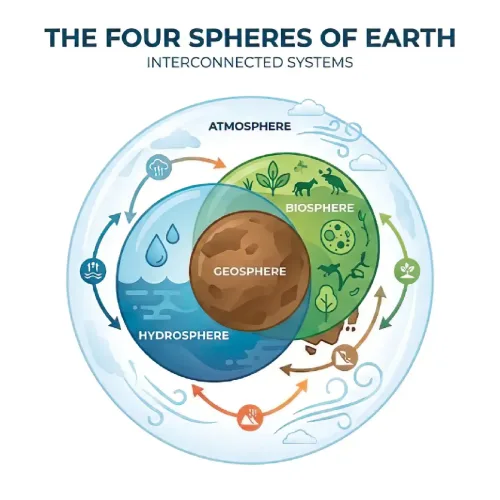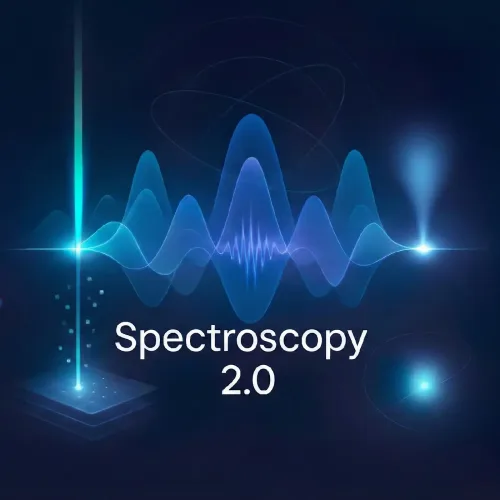The universe is a place of wonders and mysteries. Quantum gravity can play an important role in understanding this universe. Quantum gravity theory tries to combine the physics of big masses with the tiniest particles. As we look at the black holes or at the beginning of time, we find physics everywhere. Our great scientists, Niels Bohr and Max Planck, helped us a lot. They contributed significantly to understanding the mysteries of this universe. A mystery remains unsolved. How do Einstein’s gravity and quantum mechanics fit together in the theory of everything? This is the time when quantum gravity plays its crucial role.
What is Quantum Gravity?
Quantum gravity tries to combine the two different ideas. Gravity, which defines big things like planets and stars, while quantum mechanics deals with tiny objects called atoms. As Einstein described, gravity bends space time as heavy balls on a trampoline. On the other hand, quantum mechanics works with probabilities, uncertainty, and discrete particles at the microscopic level.
What is important?
Quantum gravity explains the concepts like black holes, dark matter, and Big Bang. It would be a step towards a common view of the universe’s origins and ultimate fate.
How Quantum Gravity Transform Our Concepts
Quantum gravity not only gives the answer of scientific queries. It can also change the way we feel about our place in the universe. Quantum gravity resolve some mysteries, here is a look at some of them:
- Inside Black Holes: Do black holes destroy information, or keep it in a way that we do not know? Quantum gravity offer insight into the processes occurring at the center of these cosmic giants.
- The Big Bang: Can quantum gravity explain the early moments of the universe? It expanded from a very dense point.
- Dark Matter: Physicists are still searching for dark matters. Some theories suggest that quantum gravity will shed a light on this elusive material.
| Mystery | Current Theory | Quantum Gravity’s Potential |
|---|---|---|
| Black Holes | Singularities and Event Horizon | A potential explanation for the information paradox |
| Big Bang | Standard Big Bang Theory | New ideas about how and why the universe expanded |
| Dark Matter | Unseen Mass | A possible quantum based explanation for its properties |
Top Quantum Gravity Theories
The theories about quantum gravity are different from each other. Here is a succinct summary:
- String Theory: Suppose all particles as a tiny vibrating strings rather than points. The nature of the vibration determines the nature of the particles.
- Loop Quantum Gravity (LQG): In this theory, space time is considered to be made up of tiny loops. It is like a woven fabric.
- Holographic Principle: According to this theory, our three dimensional universe, be express as a two dimensional surface like a hologram.
These theories, while distinct, all try to solve the same problem: at the smallest, quantum level, how gravity behaves. Strong in each of its own right, but far from proven, there’s still so much more to find out.
Current Research and Tools
For the full quantum gravity theory, we use cutting edge tools. Here are some approaches researchers are using:
- Particle Accelerators: These particles are close to the speed of light. These machines send particles moving toward scientists. Scientists can study the fundamental particles in closer detail.
- Quantum computers: Quantum computers can execute very complex simulations of quantum gravity models. It does allow scientists to test ideas in ways that not be done before.
- Space missions: Researchers improve theories of quantum gravity by examining phenomena like black holes and cosmic rays. They combine these ideas with real-world data.
But even though it might seem all theoretical, quantum gravity could one day be applied in the real world. What if we suddenly became faster at building rockets? We could achieve this by better understanding gravity. Another possibility is making new energy sources that come from quantum mechanics. There are as many as possibilities as there are stars in the universe.
What is Next?
The search towards the quantum gravity is complicated, long, and hazy. But it does not mean that scientists are giving up this research. Each one is still exploring a different path with its own set of challenges. This is what Stephen Hawking once said:
The ultimate triumph of human reason would be a complete theory
As we conduct more experiments, we are moving towards unraveling the mysteries of the universe. Humanity has faced these mysteries for hundreds of years.




